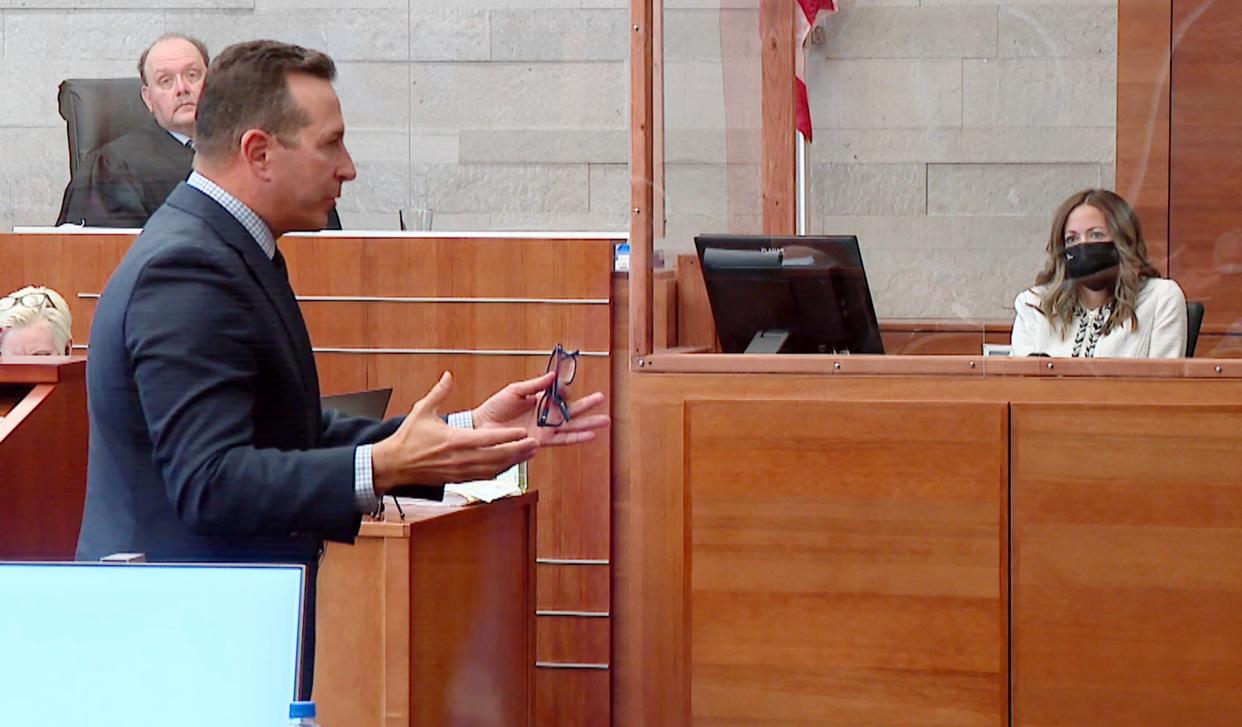Husel colleague at Mount Carmel ICU says she never overrode drug doses in end-of-life care

A former colleague of Dr. William Husel described the importance of being attentive to families of those who were nearing the end of life and how she used primarily morphine to ease pain in patients.
But prosecution witness Dr. Gina Moody was interrupted repeatedly Tuesday during Husel's trial on 14 counts of murder in the deaths of his patients as his defense attorneys objected to questions that they contended would require her to give second-hand information or opinion answers.
Moody described distressed breathing, and other complications that would require morphine or other opioids before a breathing tube is removed, a process known as palliative extubation.
She also described circumstances which would require her to override a machine that records and dispenses medication safely.
But Moody testified that she had never ordered an override for palliative extubation, or an end-of-life patient.
Asked why, she replied: "It's not an emergency." At that point of care, she said, no other treatment is possible.
Assistant Franklin County prosecutor Corinne Buker asked Moody what was the largest dosage of morphine she had ever given a patient for palliative extubation.
But defense attorney Jose Baez objected. Franklin County Common Pleas Court Judge Michael Holbrook called for a sidebar among the opposing attorneys — a frequent event Tuesday and something that has increased as the trial has gone into its second week.
When they resumed the proceedings, Buker instead asked Moody if she had given various doses starting at 25 micrograms of morphine.
At one point, Baez began to question Moody about a patient who died in 2014. This time, prosecutors objected, stating they had never seen the woman's hospital records.
Holbrook dismissed the jurors to discuss the "surprise" evidence, allowing Moody to review it.
The woman, Tracie Young, 46, of Grove City, apparently died after having a cardiac arrhythmia in late November 2014. When an ambulance arrived 20 minutes later, she had no brain activity, according to an account from WOSU radio not introduced in court.
Young was taken to Mount Carmel West hospital, where she was put on a ventilator in the intensive care unit and given 2,500 micrograms of fentanyl. She died 10 days later.
Baez maintains that he was using the document to refresh Moody' memory.
"If it comes from the hospital, it should have a (date) stamp on it," responded Buker, arguing that the document lacked a stamp and was never submitted during discovery.
When jurors were called back, Holbrook apologized for an almost 30-minute break and instructed them to disregard the previous testimony.
Moody said she learned about Husel overprescribing fentanyl in late 2019 and that she sent a text message a few months later.
"It was upsetting to see what he was going through and his family," she testified.
Baez read part of an email where she told Husel, "I am truly sick at what you're going through."
Earlier Tuesday, John O'Connell, a former pharmacist with Mount Carmel Health who was fired in 2019 in the wake of the Husel investigation and then retired, described how fentanyl overuse had become a problem under Husel's watch.
Husel's attorneys introduced evidence showing that machines in the hospital designed to monitor and dispense drugs were often overridden by doctors and nurses — as frequently as 100 times per day and more than 36,000 times per year between 2017 and 2019.
Like other pharmacists, O'Connell said, he was verbally placed on administrative leave for six months after Husel's dosing practices were made public. On July 11, 2019, he was fired. He testified that 12 others were also let go.
Menashe asked O'Connell "Do you believe that as you sit here today that you are a suspect? He answered no.
Asked if he was unfairly treated by Mount Carmel, O'Connell took a lengthy pause and answered 'Yes.'
dnarciso@dispatch.com
@DeanNarciso
This article originally appeared on The Columbus Dispatch: Doctor at Mount Carmel said she prescribed lower dozes of opioids
